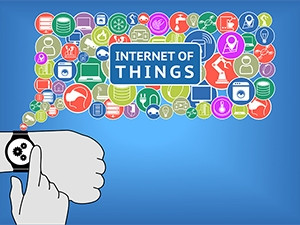
Organisations in the Middle East and Africa (MEA) will invest more than $6.6 billion in Internet of things (IOT) hardware, software, services, and connectivity in 2016, according to forecasts by the International Data Corporation (IDC).
The ICT consulting and advisory services firm expects IOT revenues in the region to increase at a compound annual growth rate of 21.3% over the next four years to total more than $14.3 billion in 2020.
IDC says the manufacturing and transportation are the vertical industries leading the way in terms of IOT investment in MEA, with both expected to spend an estimated $1.1 billion each in 2016.
The next largest industry, utilities, is expected to see IOT investments of almost $800 million this year, it adds.
The IOT use cases receiving the greatest levels of investment from MEA organisations across these three industries are manufacturing operations, freight monitoring and smart grid (electricity), says IDC.
"Looking across all industries in the MEA region, freight monitoring will receive the greatest level of IOT investment throughout the forecast period, followed by smart grid (electricity) and manufacturing operations.
In addition to these use cases, remote health monitoring, smart buildings, and smart home concepts will see significant levels of investment over the next few years."
Wale Babalola, a research analyst for telecommunications, IOT, and digital media at IDC Middle East, Africa, and Turkey, says IOT solution deployments across MEA will continue to see increased adoption rates, both in the public and private sectors, as stakeholders begin to realise an immediate return on their investments.
In addition, the growing development of purpose-built IOT platforms and the continuing proliferation of smart devices will serve as catalysts for IOT adoption across the region's industry spectrum, he adds.
While manufacturing and transportation will lead the way in terms of overall IOT investments, spending levels will increase by more than 100% over the next four years in construction, consumer, insurance, manufacturing, retail, and telecommunications industries, says the IDC.
Cross-industry investments, which represent use cases common to all industries, are also forecast to see revenues more than double during this period, it adds.
According to research firm MicroMarketMonitor, the Middle East and Africa IOT and machine to machine (M2M) communication market is primarily driven by M2M control systems in transportation and automotive sector.
It adds that the region's IOT is increasing as it is used in the transportation sector and helps enterprise customers to manage a fleet of vehicles, monitor vehicles' running time, idle time, and stop times, in order to optimise routes and usage, which in turn has reduced fuel costs.
In SA, the market for connected devices will account for $2 billion of the global total value of $1.7 trillion by 2020, says IDC.
IOT opportunity in Africa is enormous and the continent is likely to house around one billion connected devices by the turn of the decade, it adds.
George Kalebaila, senior research manager at IDC Sub-Saharan Africa, believes the only way to capitalise on this huge opportunity is through collaboration.
"No one industry player can provide an end-to-end solution on its own, so partnerships in IOT are vital for leveraging the full range of benefits available in this broad ecosystem."
Share